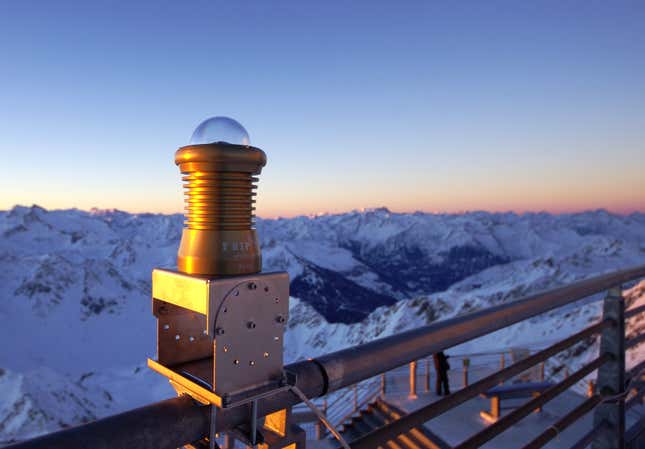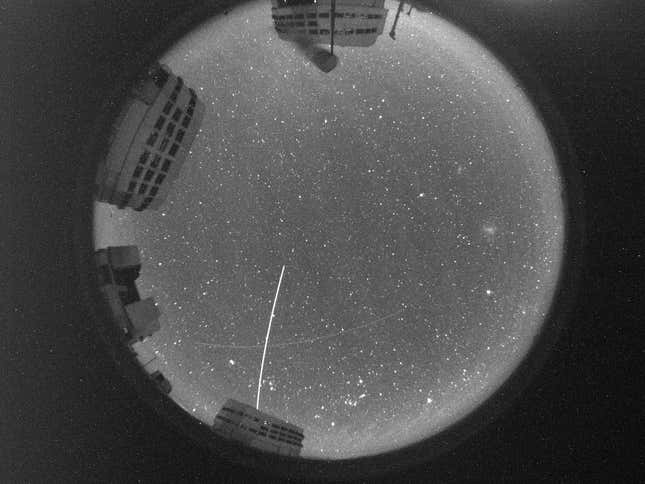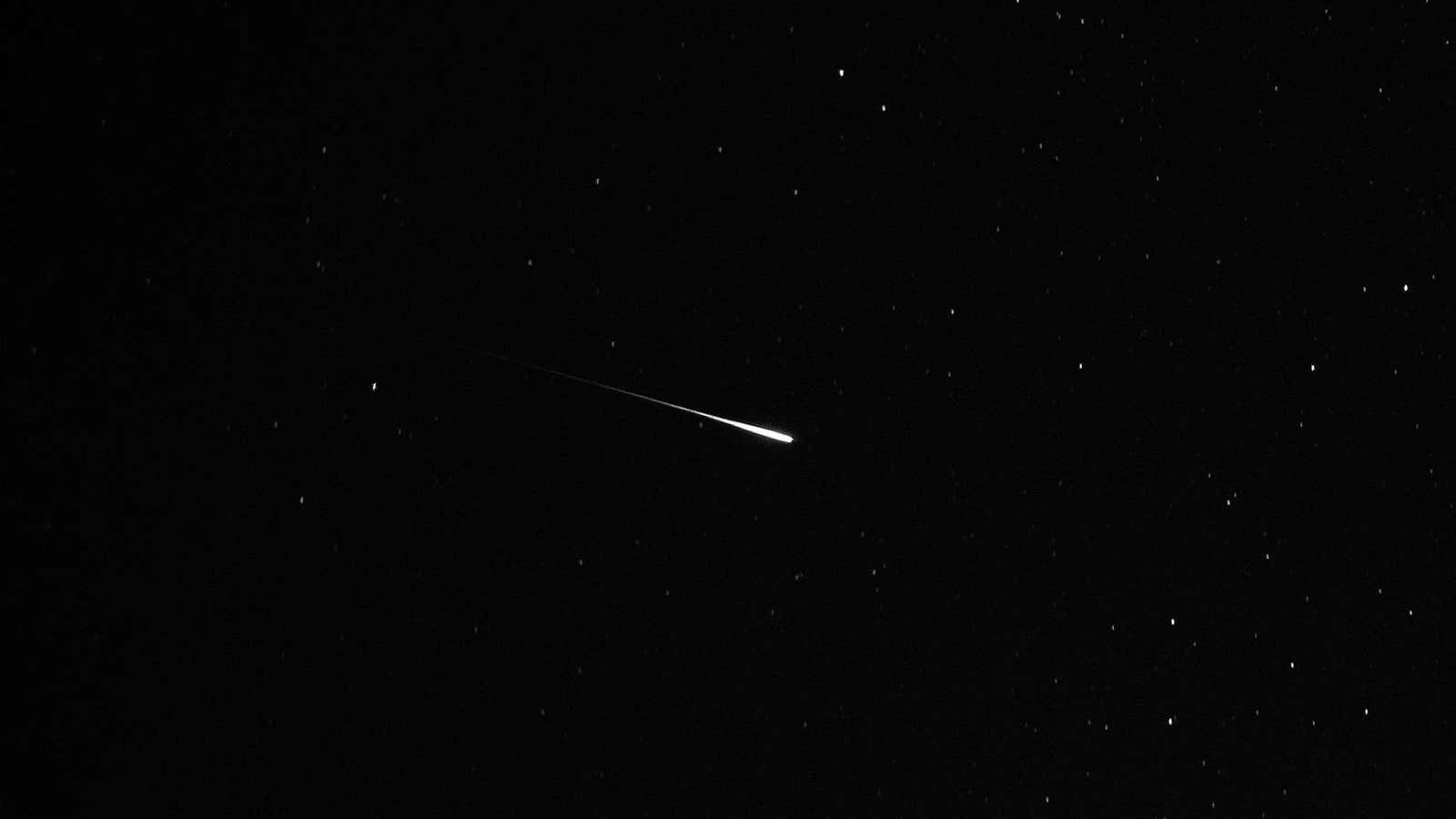Someone in France must have wished upon a shooting star. Now their wish has come true: the country is launching a network that will enlist thousands of volunteers to help find meteorites.

The Fireball Recovery and Inter-Planetary Observation Network (Fripon), a joint project of several observatories and research centers, was activated last month. The network will have 100 cameras across France and nearby countries looking at the sky for meteors: bits of comets or asteroids, which leave a fire-trail as they burn up on entering the Earth’s atmosphere, hence the name “shooting stars.” Most meteors are tiny dust particles, but some are big enough to survive the burn-up and reach the surface of the planet, which is when they get called meteorites.

Things that fall from the sky are valuable. King Tut of Egypt made his famous dagger using metal extracted from a meteorite, which he would have considered a gift from the gods. Today, by looking for where meteorites came from and analyzing their composition, scientists can learn about the history of the solar system and even help us track asteroids that could hit the Earth.
Fripon’s cameras can help scientists track the travel path of a shooting star. This can be used to find out where in the solar system it came from. It can also help narrow down the search region to retrieve the meteorite. Once the area has been located, Fripon will call on volunteers across the country to go out and search for the meteorite. The network is going to soon start recruiting volunteers.
But, even with Fripon and its volunteers on watch, the odds of finding a meteorite are low. Fewer than 150 meteorites larger than 10 grams (one-third of an ounce) fall to Earth in any year. And they can, of course, fall anywhere on the planet, including in the oceans. Without Fripon, only one meteorite is found every decade in France. A smaller Spanish meteor-spotting network has only found two meteorites in 12 years. Fripon hopes to collect one tracked meteorite per year.
Still, even if it takes a while, Fripon will give scientists many more opportunities to make their dreams upon a shooting star come true.
